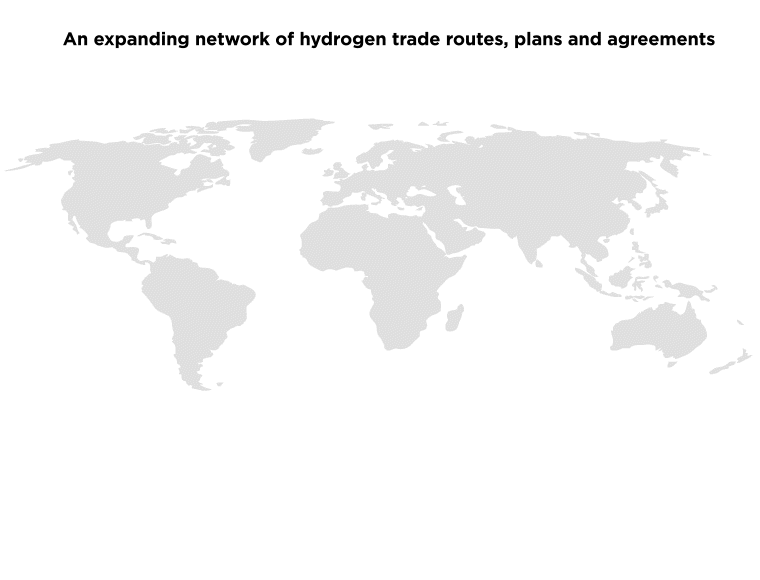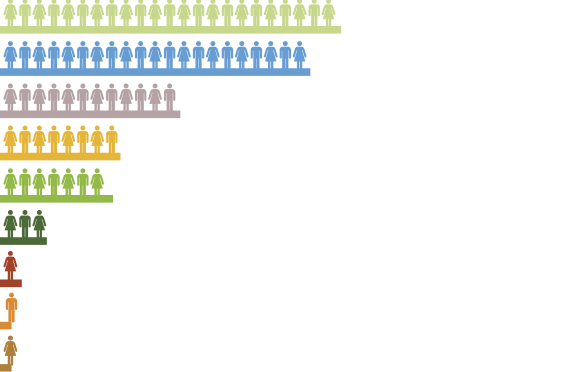Throughout the year, IRENA brings you the latest news on progress, impacts and solutions for the energy transition. Here are our top ten news pieces of 2022.
Renewable Power Remains Cost Competitive amid Fossil Fuel Crisis
The Renewable Power Generation Costs report shows almost two-thirds of renewable power added in 2021 had lower costs than the cheapest coal-fired options in G20 countries. Costs for renewables continued to fall in 2021 as supply chain challenges and rising commodity prices have yet to show their full impact on project costs. The cost of electricity from onshore wind fell by 15 per cent, offshore wind by 13 per cent and solar PV by 13 per cent when compared to 2020.
Cost-competitive renewables play a critical role in addressing today’s energy and climate emergencies by accelerating the transition in line with the 1.5°C warming limit and the Paris Agreement goals.
Hydrogen Economy Hints at New Global Power Dynamics
Rapid growth of the global hydrogen economy can bring significant geoeconomic and geopolitical shifts giving rise to a wave of new interdependencies. The Geopolitics of the Energy Transformation: The Hydrogen Factor report sees hydrogen changing the geography of energy trade and regionalising energy relations, hinting at the emergence of new centres of geopolitical influence built on the production and use of hydrogen, as traditional oil and gas trade declines. “Hydrogen could prove to be a missing link to a climate-safe energy future,” Francesco La Camera, Director-General of IRENA said.

Renewables Take Lion’s Share of Global Power Additions in 2021
Renewable energy continued to expand steadily and well above the long-term trend, with share in total capacity expansion reaching new record of 81% in 2021. By the end of the year, global renewable generation capacity amounted to 3 064 Gigawatt (GW), increasing the stock of renewable power by 9.1 per cent.
Although hydropower accounted for the largest share of the global total renewable generation capacity with 1 230 GW, IRENA’s Renewable Capacity Statistics 2022 shows that solar and wind continued to dominate new generating capacity. Together, both technologies contributed 88 per cent to the share of all new renewable capacity in 2021. Solar capacity led with 19 per cent increase, followed by wind energy, which increased its generating capacity by 13 per cent.
Energy Transition Holds Key to Tackle Global Energy and Climate Crisis
Short-term interventions addressing the current energy crisis must be accompanied by a steadfast focus on mid- and long-term goals of the energy transition. High fossil fuel prices, energy security concerns and the urgency of climate change underscore the pressing need to move faster to a clean energy system, according to the World Energy Transitions Outlook 2022.
“The energy transition is far from being on track and anything short of radical action in the coming years will diminish, even eliminate chances to meet our climate goals”, said Francesco La Camera, Director-General of IRENA.
Read more https://www.youtube.com/embed/bARLuPAuP_s
A Quarter of Global Hydrogen Set for Trading by 2050
Green hydrogen trade can provide a low-cost alternative that diversifies energy imports and improves energy security. To make hydrogen trade cost-effective, the costs of producing and trading green hydrogen must be lower than domestic production to offset higher transport costs. A new report series released by the International Renewable Energy Agency (IRENA) sees hydrogen trade significantly contributing to a more diversified and resilient energy system.
IRENA Invites Students to Apply for the Spring 2022 Cohort of the Student Leaders Programme
The SLP traineeship aims to build the capacity of the future generation of global energy professionals. The Student Leaders Programme (SLP) is IRENA’s response to young peoples’ growing interest in renewables and it aims to build the capacity of future energy professionals by providing them with the knowledge and skills necessary to address urgent energy challenges.
India and IRENA Strengthen Ties as Country Plans Major Renewables and Hydrogen Push
India’s Ministry of New and Renewable Energy has signed a strategic partnership agreement with IRENA, signalling its intent to further strengthen its collaboration with IRENA in the field of Renewable Energy.
India installed 13 gigawatts (GW) of renewables in 2021 and has grown its capacity by over 53 GW in the last five years, positioning it as one of the fastest growing renewable energy adopters in the world. With massive renewable energy potential, India has an aim to become a major producer of green hydrogen to support the decarbonisation of its industrial economy. According to IRENA, hydrogen will account for around 12 per cent of total energy supply in a 1.5°C world by 2050.
The Alliance for Industry Decarbonization Outlines Core Focus Topics, and Welcomes New Partners at Maiden COP27 Meeting
Top executives from the 28 member companies and knowledge partners of the Alliance for Industry Decarbonization held the group’s maiden meeting at COP27.With more than 30% of global greenhouse gas emissions and nearly 40% of global energy consumption, the industrial sector is the second largest emitter after power generation. Without increased emission reduction efforts within the industrial sector, the goal of limiting global temperature rise to 1.5° Celsius stays unreachable.
New Report Warns World of Huge Untapped Renewable Energy Potential
Renewables are the backbone of the energy transition and a viable climate solution. Yet out of the 183 parties to the Paris Agreement with renewable energy components in their Nationally Determined Commitments (NDCs), only 143 have quantified targets with the vast majority focusing on the power sector. Only 12 countries had committed to a percentage of renewables in their overall energy mixes.
Renewable Energy Targets in 2022: A guide to design, released by the International Renewable Energy Agency (IRENA) at the UN Climate Change Conference COP27, assesses the level of renewable energy ambition in national climate pledges and benchmarks targets against the global climate goal of limiting temperature rise to 1.5°C. It clearly shows the collective level of energy transition ambition to date is not enough despite the Glasgow Climate Pact to upgrade 2030 targets in national pledges.
Renewable Energy Jobs Hit 12.7 Million Globally
Worldwide renewable energy employment reached 12.7 million last year, a jump of 700,000 new jobs in one year despite the lingering effects of COVID-19 and the growing energy crisis, according to the Renewable Energy and Jobs: Annual Review 2022. Solar energy was found to be the fastest-growing sector. In 2021 it provided 4.3 million jobs, more than a third of the current global renewable workforce.
The new report was published by the International Renewable Energy Agency (IRENA) in collaboration with the International Labour Organization (ILO) during the Global Clean Energy Action Forum in Pittsburgh, USA.



